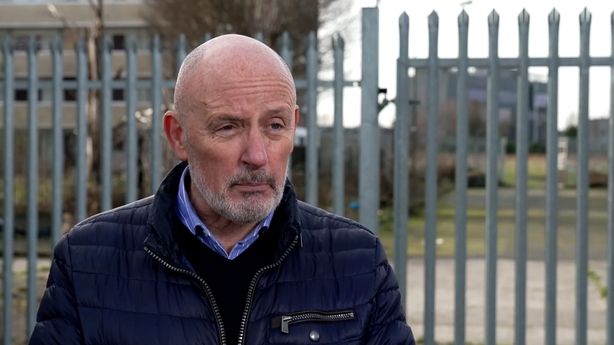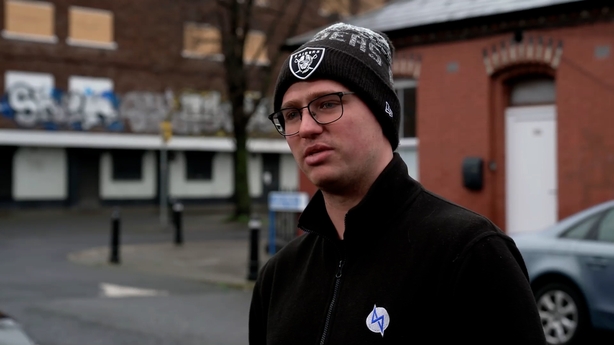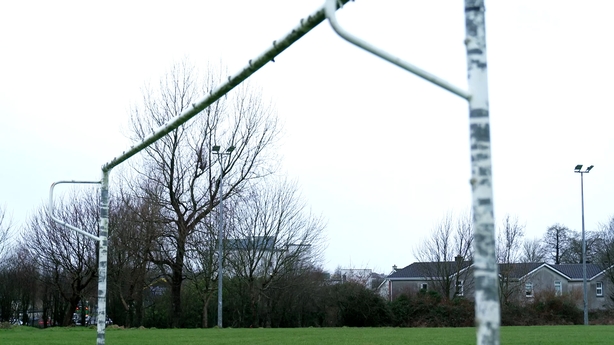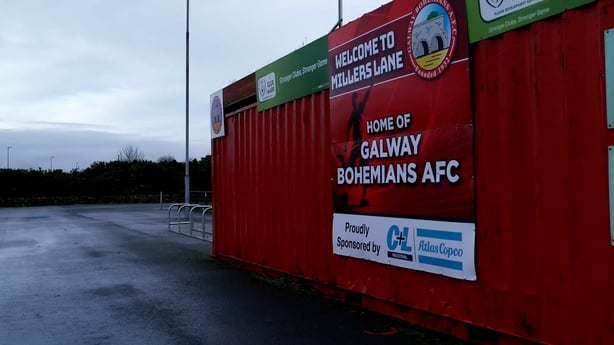Playing pitches in Dublin's southwest inner city are needed to attract vulnerable young people to sport and keep them away from getting involved in the drug trade, according to local campaigners.
There are no full-size playing pitches in the area and chairperson of the Sporting Liberties campaign group JJ O'Mahony is calling for better sports facilities.
He says a surge in cocaine use in Dublin means some children in the area are being used as "runners" to collect and deliver drugs on scooters.
"We have so little facilities for kids in the area and they look at these drug lords going around in their designer gear, getting their holidays and they make it attractive to them," Mr O’Mahony told Prime Time.
"It’s like putting us into a boxing ring, with our hands tied behind our backs, trying to go into a fight."
Mr O’Mahony believes that children who should be playing sport are being lost to a life "on the dark side" working in the illicit drugs trade.
While Mr O’Mahony says the area is a "wonderful" place to live, there are some children that "aren't afforded the opportunities of others and once they get caught in that net, there's no way out for them."
"There is little doubt that so many kids here walk a knife edge in which path they will take…but you must catch them really young. You must catch them when they’re between four to eight years of age."

Mr O’Mahony has coached with Kevins GAA club in the Liberties for decades. The 120-year-old club has over 1,000 members but no playing pitch.
Jamie Tracey grew up in the Dolphin House public flat complex. A strong hurler, he has played for Kevins since he was a child.
He told Prime Time that he got his first job through connections he made at the club. He later did an apprenticeship with an electrician and now has his own company, where he employs 12 people.
He acknowledges that drug and alcohol addiction is a major issue in the area but involvement in sport helps young people avoid that lifestyle.
"If there is anybody that could have been 50:50 from going one way or another, being involved in Kevins definitely swings you to the better side of it," Mr Tracey said.
"If you have not got anywhere to run around, you will eventually start doing other things. And the knife edge is either drugs and crime; or is it sports, your career and trying to build an education?"

Paul McManus, Kevins Games Promotion Officer, coaches hurling and camogie in 13 local schools, none of which have a playing pitch.
"We have no home of our own and there’s no green space for us to actively play sport," he said.
Between the river Liffey and the Grand Canal in Dublin 8, there are no full-sized playing pitches in any field sport available to local clubs.
A 2015 Dublin City Council report, 'The Liberties Greening Strategy', acknowledged the area "is extremely deficient in quality green space."
The area is densely populated but Mr McManus says some of Kevins GAA club trips abroad over the years have been eye-opening.
"We played hurling all over the world. We played in Central Park in New York. We played in the high-rise buildings in a pitch in the middle of Berlin," he said.
In stark contrast, southwest inner-city Dublin has "no green space whatsoever to play sport."
In recent weeks, the Sporting Liberties group briefed TDs, senators and councillors about the lack of facilities at a meeting in Leinster House.
Mr O’Mahony says there has been too much emphasis on building in the area and not enough consideration given to green space.
"It's been turned into a concrete jungle with an influx of student accommodation, hotels, breweries - everything has been prioritised except the children. When it comes to making decision and planning, the children have fell right down to the bottom of the list where we live," he told Prime Time.
Thousands of sports clubs across the country have their own playing pitches, but a large number are publicly owned and managed by local authorities.
The Government invests around €150 million per year in Sports Capital Grants. But campaigners point out that clubs who do not have their own pitch cannot apply for capital grants.
While clubs can apply for smaller equipment grants, campaigners argue that this disadvantages areas like Dublin’s southwest inner city, which is home to 8,500 children.
Dublin City Council told Prime Time it is partnering with the Land Development Agency to build 543 homes on the old St Teresa’s Garden’s site in Dublin 8.
As part of this development, a planning application has been submitted to An Bord Pleanála for a new municipal pitch, changing rooms and a boxing club.
A decision was due last year but has not been made to date and there is no indication of a date for such decision.

Meanwhile, in other parts of Dublin, campaigners are fighting to keep hold of the playing fields they already have access to.
A soccer club in west Dublin recently fought to save their pitch from being taken over. Corduff FC mounted a campaign to save their second pitch after a Fingal County Council proposal proved controversial locally.
The council wanted to replace the pitch with other facilities including a wildflower garden to promote biodiversity.
On the back of a grassroots campaign, locals in Corduff lodged submissions opposing the plan and on Monday the council decided to retain the second soccer pitch.
Tensions between local authorities and sports clubs over pitches are not confined to the capital. It is also an issue in Galway, where the city’s councillors voted in 2019 to convert a pitch on the Old Dublin Road into a new cemetery.
The pitch, which was used as an "overflow" pitch by a number of soccer clubs in Galway, was one of 41 sites looked at by the council as a potential site for a new burial ground.
"The city requires a new cemetery, but I don't believe it should be delivered instead of a playing pitch. We need to be providing more pitches, not taking them away," Independent councillor Mike Cubbard told Prime Time.
"You have to find a way to deliver both playing facilities and club facilities and community facilities, as well as, of course, a burial ground. It can't be either or. You have to deliver both.
Based in the sprawling Knocknacarra area, Galway Bohemians, which has 350 members, is one of the football clubs struggling to cope with limited space.
"I'm a very proud Galway man and I think Galway is a fantastic town, but I think we're letting down our generations coming behind us because we are not providing these facilities that need to be provided for these kids," Anthony Trill, one of the club’s coaches, told Prime Time.
He says that houses have been built for two or three decades in Knocknacarra but there is not enough recreational space.
Councillor Cubbard agrees that clubs like Galway Bohemians and West United are in a constant battle for pitch space. He added, "If we don't deliver on projects like that, we're absolutely failing a generation."

Galway City Council told Prime Time it is committed to continued investment in sports facilities.
It provides 51 playing facilities with dressing rooms at 17 of them. The council said that there is currently only one cemetery available in Galway city for new burials. The pitch on the Old Dublin Road is a "back up" pitch when others are unplayable. Following a review of 41 potential sites councillors voted and agreed on the pitch in 2019.
Niamh Tallon of HerSport, an organisation that advocates for girls and women in sport, believes pitch shortages can be detrimental as a club does not have a focal point.
Twice as many girls drop out of sport than boys by the age of 14 and Ms Tallon believes the lack of adequate changing facilities contribute to this.
"I think that's a problem in some clubs all over the country and ensuring that there are the right changing facilities and bathrooms available for girls and women," she said
"It's a fact of life that girls and women are going to have a period in a menstrual cycle. And the necessity for access to toilets is very important for girls in terms of keeping them involved in sport. We don't need to be making it more challenging."
Sport Ireland, which is tasked with development of Irish sport, has recently developed a digital database to accommodate information on all sporting facilities and amenities, including playing pitches.
As it stands there is currently no comprehensive data on the number of pitches in the country.
"Demographic analyses will be facilitated once dataset acquisition and verification is completed. It is envisaged that this process will be substantially completed during 2024," the department told Prime Time.
Meanwhile in the Liberties, the 8,500 children in the area await a decision from An Bord Pleanála for a green field to play sport on.






